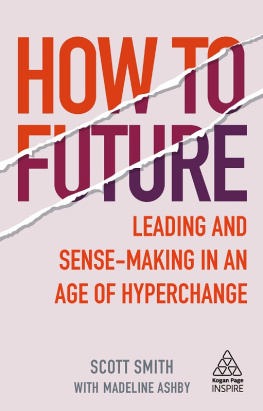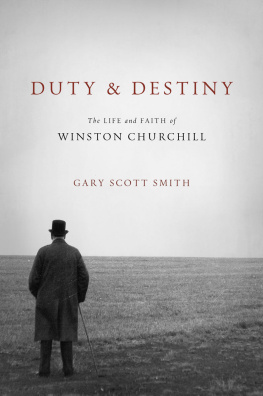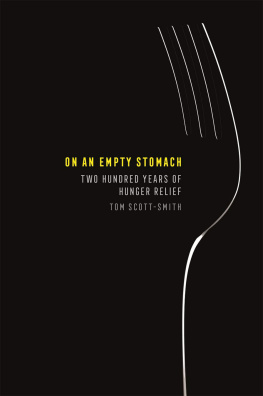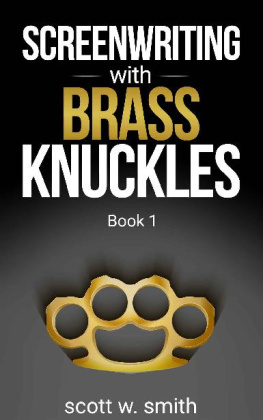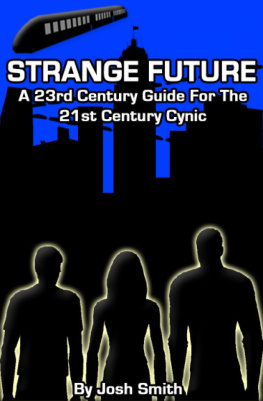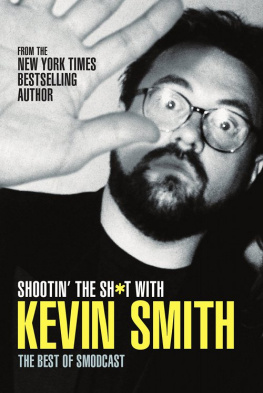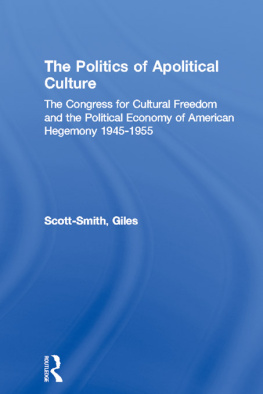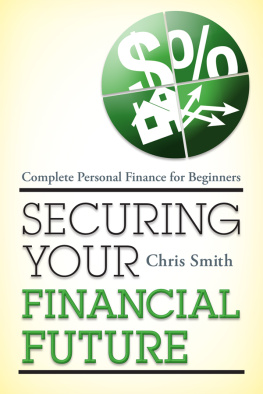Smith Scott - How to Future
Here you can read online Smith Scott - How to Future full text of the book (entire story) in english for free. Download pdf and epub, get meaning, cover and reviews about this ebook. year: 2020, publisher: Kogan Page, Limited, genre: Home and family. Description of the work, (preface) as well as reviews are available. Best literature library LitArk.com created for fans of good reading and offers a wide selection of genres:
Romance novel
Science fiction
Adventure
Detective
Science
History
Home and family
Prose
Art
Politics
Computer
Non-fiction
Religion
Business
Children
Humor
Choose a favorite category and find really read worthwhile books. Enjoy immersion in the world of imagination, feel the emotions of the characters or learn something new for yourself, make an fascinating discovery.
- Book:How to Future
- Author:
- Publisher:Kogan Page, Limited
- Genre:
- Year:2020
- Rating:3 / 5
- Favourites:Add to favourites
- Your mark:
- 60
- 1
- 2
- 3
- 4
- 5
How to Future: summary, description and annotation
We offer to read an annotation, description, summary or preface (depends on what the author of the book "How to Future" wrote himself). If you haven't found the necessary information about the book — write in the comments, we will try to find it.
How to Future — read online for free the complete book (whole text) full work
Below is the text of the book, divided by pages. System saving the place of the last page read, allows you to conveniently read the book "How to Future" online for free, without having to search again every time where you left off. Put a bookmark, and you can go to the page where you finished reading at any time.
Font size:
Interval:
Bookmark:
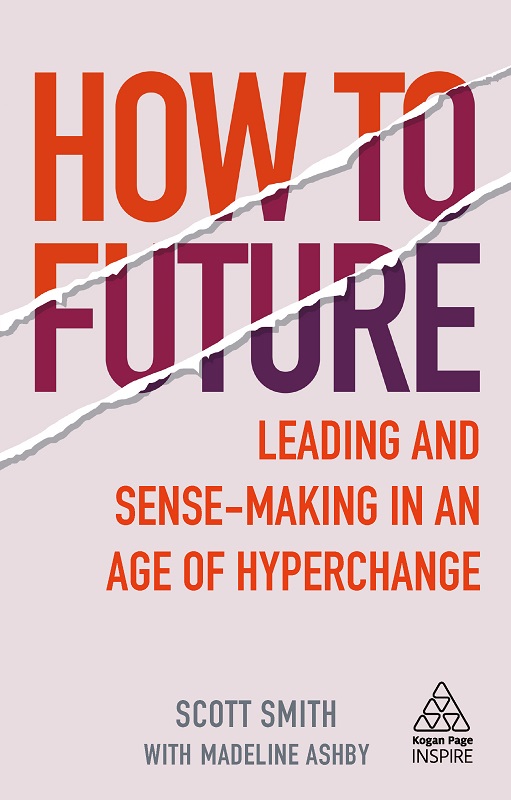
Scott Smith and Madeline Ashby have done our increasingly uncertain world a service with How to Future by sharing the crown jewels of the futurists trade. This book is filled with plain-spoken but extremely sophisticated guidance on how to understand and prepare for whats over the horizon.
AUGUST COLE, CO-AUTHOR OF BURN IN: A NOVEL OF THE REAL ROBOTIC REVOLUTION AND GHOST FLEET: A NOVEL OF THE NEXT WORLD WAR
Reading How to Future in mid-2020 reinforced in my mind how important it is to broaden the scope of who gets to future. There has never been a better time to learn how to imagine new possibilities and incorporate more diversity of experiences and points of view into the process. If you want to engage communities and make new, different and more resilient futures happen, Smith and Ashbys book provides both a manual and a call for doing so.
MATT JONES, PRINCIPAL DESIGNER, GOOGLE AI
In a world that needs proper, grown-up futures thinking more than ever, Howto Future is simply brilliant its the tonic (and the gin!) weve been waiting for. A true manual to futuring, it is both accessible and wise, written by two of the leading thinkers in the field with their characteristic wry pragmatism. With hope and without hype, the book shows us how to better think about, prepare for, and deal with the many strange things the future yet has to offer.
PROFESSOR ALF REHN, AUTHOR OF INNOVATION FOR THE FATIGUED
When the going gets weird, the weird turn pro. The old pros at Changeist have written the definitive guide to thinking around corners, out of quarantine and through the uncertainty ahead. How to Future contains all the accrued foresight you need to begin practicing futures as a team or organization, and persuasively argues that your return on vision will trump straight-line projections every time.
GREG LINDSAY, DIRECTOR OF APPLIED RESEARCH, NEWCITIES FOUNDATION
For Rowan and Sabine,
who endured.
Scott Smith is a futurist, writer, speaker and educator whose work focuses on guiding large organizations towards better futures. He is also founder and managing partner of Changeist, a futures research and consulting partnership established in 2007 in the United States, now based in the Netherlands.
Scott has consulted for a range of global institutions, including SWIFT, UNICEF, the International Federation of Red Cross and Red Crescent Societies, the Royal Society, Nesta and the Dubai Future Foundation. He has also led engagements with some of the largest and most-respected global financial, retail, telecoms, technology and media brands, such as the BBC, The New York Times, ASOS and Comcast. He has designed and delivered futures projects, talks and workshops in over a dozen countries and facilitated projects and workshops in multiple languages.
Scott helped create and lead the Strategic Foresight programme for Dubai Future Academy, and lectures in the Innovation & Future Thinking programme at IED Barcelona, a course he designed. He has written for international publications such as The Atlantic, Quartz, WIRED UK and How We Get to Next, and has spoken at major events as diverse as the Next Web, Lift, Helsinkis Flow Festival, South Australias Open State, Atlantic Council Energy & Economic Summit, Oxford Futures Forum, EPIC, SXSW, Sibos, FutureFest, FutureEverything, NEXT14, 15 and 19, and Frankfurts me Convention. He has also contributed work to pieces featured in several cultural exhibitions, including the BIG BANG DATA exhibition at Barcelonas CCCB in 2014, and the 2017 Vienna Biennale.
He has more than 25 years professional experience in forecasting and has lived in three countries during that time. He currently makes his home in The Hague, Netherlands, where his spare time is currently devoted to developing fiction and documentary projects.
Madeline Ashby is a futurist and science fiction writer based in Toronto, Canada. She has worked with the Institute for the Future, SciFutures, Nesta, Data & Society, the Atlantic Council, Strategic Innovation Lab, the Robert Wood Johnson Foundation and others, and has conducted workshops with Engineers Without Borders Canada, United Way Canada and the Ontario Media Development Corporation.
She lectures on science fiction and design thinking at OCAD University in Toronto, where she graduated with a Masters in Design from the Strategic Foresight & Innovation programme. Madeline is also a guest lecturer at the Dubai Future Academy.
She is the author of the Machine Dynasty series and the novel Company Town from Tor Books, which was runner-up for the Canada Reads prize in 2017. Her fiction has been translated into Japanese, German, Italian and Romanian. Her work has been published in Slate, MIT Technology Review, BoingBoing and The Atlantic.
Theres an old joke among academics that goes: He (or she) who can, does; he (or she) who cannot, teaches. Sadly, many futurists today try to do both, but struggle to do either very well. This may sound harsh coming from the Futurist-in-Chief of the Dubai Government, arguably one of the most forward-looking, foresight-friendly cities in the world, but between Brexit, Coronavirus, cyberattacks, political assassinations, the burning of the Amazon, the melting of the ice caps, and the general, ongoing upheaval of just about everything, readers could be forgiven for asking if all this futures stuff really works at all. The world has been thinking about the future for decades now and yet we keep getting blind-sided, disrupted and disoriented with increasing frequency and severity.
The reality is that most foresight doesnt work in the traditional sense, at least if your definition of working includes making a difference in decisions that really matter. Unfortunately, this realization isnt new. A study in the Journal of Technological Forecasting and Social Change, one of the fields best and longest-running academic journals, reviewed over 50 years of foresight studies and found a disturbing pattern. As early as 1972, foresight professionals were bemoaning the growing wave of disillusionment and questioning With a track record like this, who could be blamed for thinking futurists are basically self-interested salespeople telling managers what they want to hear, with relatively little real impact on the world?
Whats a committed change-maker supposed to do?
As the world gets weirder and weirder, its natural for people to seek better tools for understanding what is going on. One could even argue that it is our responsibility to try to understand the future, as hard as that may be, and do our best to figure out what to do about it in a way that translates meaningfully into organizational action. As Bruce Sterling is quoted in the opening chapters of this book, People need a motivating vision of what comes next and the awareness that more will happen after that the future is a process not a destination. The future is a verb, not a noun. This is especially true in the context of our current experience of social, political and economic upheaval.
So where do you turn if youre an executive, a civil servant, an entrepreneur, an activist, or just someone who wants to do something that makes a difference? Heres where I tell you: This time its different and if youre reading this book, that really might be true.
Next pageFont size:
Interval:
Bookmark:
Similar books «How to Future»
Look at similar books to How to Future. We have selected literature similar in name and meaning in the hope of providing readers with more options to find new, interesting, not yet read works.
Discussion, reviews of the book How to Future and just readers' own opinions. Leave your comments, write what you think about the work, its meaning or the main characters. Specify what exactly you liked and what you didn't like, and why you think so.

